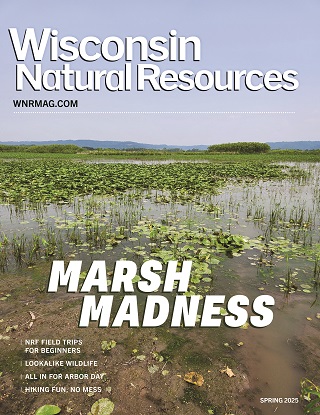Contact: DNR Office of Communications
DNRPress@wisconsin.gov
Wisconsin DNR, University Of Wisconsin-Madison Division of Extension And College Of Agriculture And Life Sciences Announces Nitrate Webinar Series
 The Wisconsin DNR, University of Wisconsin-Madison Division of Extension and College of Agriculture and Life Sciences To Host Nitrate Webinar Series
Photo credit: iStock/Imgorthand
The Wisconsin DNR, University of Wisconsin-Madison Division of Extension and College of Agriculture and Life Sciences To Host Nitrate Webinar Series
Photo credit: iStock/Imgorthand
MADISON, Wis. – The Wisconsin Department of Natural Resources (DNR) today announced the launch of a virtual webinar series focused on nitrate in Wisconsin.
The series will touch on the science and economics around a number of workable approaches for farmers shown to minimize nitrogen losses to groundwater. The webinars will take place Aug. 6, Aug. 13, Aug. 20 and a fourth date to be determined.
Presented by the Wisconsin DNR, University of Wisconsin-Madison Division of Extension and College of Agriculture and Life Sciences, each 60-minute webinar will take place over the lunch hour with time provided for a Q&A session.
Groundwater pollution from human activities and natural sources occurs across Wisconsin, which is particularly concerning for the 70% of Wisconsin residents who get their drinking water from groundwater.
Nitrate is Wisconsin’s most widespread groundwater contaminant, according to Wisconsin’s Groundwater Coordinating Council. Nitrate contamination of groundwater is increasing in extent and severity in the state.
Nearly 90% of nitrate in groundwater is due to agricultural activities, including manure spreading and fertilizer application. Other common sources of nitrate include septic systems and sewage treatment practices.
Nitrate dissolves easily in water and does not adsorb onto the soil. It can easily be carried into the groundwater by rainwater and melting snow as they make their way through the soil and bedrock into the underlying aquifer.
Nitrate impacts Wisconsin’s largest source of drinking water and is an economic loss to farmers. Initiatives completed by university researchers, government and the agriculture industry can help us understand the multiple tools – approaches and agricultural best practices – to reduce nitrogen loss from agriculture.
More information about nitrate in drinking water is available on the DNR website here.
Nitrate Webinar Series
Noon - 1 p.m. Friday, Aug. 6
Overview of Nitrate-Nitrogen Loss Models for Use in Agriculture & Estimates of Leachable Nitrogen from a Variety of Wisconsin Farms
Speakers:
Francisco Arriaga, Professor of Soil Science, UW-Madison
Matt Ruark, Professor of Soil Fertility and Nutrient Management, UW-Madison
Noon - 1 p.m. Friday, Aug. 13
Scenarios for Reducing Manure Applications on Permeable Soils During Fall & Cover Crops: A Review of Research and History of Their Use to Minimize Nitrogen Leaching Losses
Speakers:
Joe Baeten, DNR Northeast Team Supervisor, Watershed Management Bureau
Karl Gesch, DNR Nonpoint Pollution Program Coordinator, Watershed Management Bureau
Mark Riedel, DNR Water Resources Management Specialist, Watershed Management Bureau
Noon – 1 p.m. Friday, Aug. 20
New Opportunities with Cover Crops for Wisconsin Farmers & Innovative Partnerships and Advances in Agricultural Nitrogen Management
Speakers:
Robert Myers, Director, Center for Regenerative Agriculture, University of Missouri
Tom Green, President, Integrated Pest Management Institute of North America
Kristen Osgood, Integrated Pest Management Institute of North America
*TBD*
Preliminary Assessment of Economic Impacts on Wisconsin Farms of Reducing Nitrogen Losses
Speakers:
Paul Mitchell, Professor of Agriculture and Applied Economics, UW-Madison
Deana Knuteson, Nutrient and Pest Management Program, UW-Madison Horticulture
Jeremy Beach, Associate Director, Renk Agribusiness Institute

